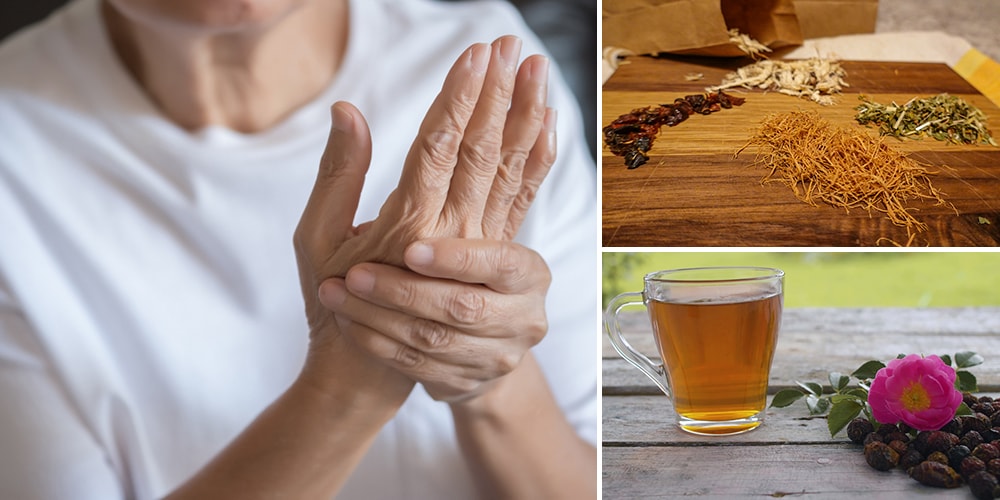
You Should Try This Tea for Arthritis Pain
Whether they come with age, an autoimmune disease, or overuse, achy joints are nobody’s friend. In the United States, almost 60 million people suffer from arthritis. In fact, it’s the leading cause of work disability.
While there are conventional treatments available, some people prefer a more natural approach to managing their symptoms. In this blog post, we’ll discuss how to make an arthritis pain relief tea using a mixture of three powerful herbs: Cat’s claw, Yucca root, and Rosehips.
Background on Arthritis
Arthritis is a condition that affects the joints, causing pain, inflammation, and stiffness. It can occur at any age and affects people of all genders and ethnicities. There are several types of arthritis, but the two most common ones are osteoarthritis and rheumatoid arthritis.
Osteoarthritis is the most common type of arthritis and results from extensive wear and tear. It occurs when the cartilage that cushions the ends of bones in the joint wears down, leading to pain, stiffness, and decreased mobility. Osteoarthritis usually affects weight-bearing joints such as the hips, knees, and spine, but it can also affect the hands and fingers.
Rheumatoid arthritis is an autoimmune disorder that occurs when the body’s immune system mistakenly attacks the synovium, the thin membrane that lines the joints. This leads to inflammation and damage to the joints and can cause deformities and loss of function over time. Rheumatoid arthritis can affect any joint in the body, including the hands, feet, wrists, and elbows.
In addition to the main types of arthritis, this herbal arthritis pain relief tea can help alleviate joint pain for other chronic conditions that present with arthritic symptoms. Fibromyalgia, for example, causes damage to the joints and surrounding soft tissues. The anti-inflammatory and analgesic properties of these herbs can also offer ease to people suffering from fibromyalgia.
Herbal Remedies for Joint Health
In this recipe, we take advantage of the benefits of a root, a bark, and a berry. Each offers an array of health benefits, including ones that support joint health and relieve pain.
Cat’s Claw
Cat’s claw, also known as Uncaria tomentosa, is an herb that has been used for centuries in traditional medicine for its numerous health benefits. This vine-like plant is native to the Amazon rainforest and is rich in antioxidants, alkaloids, and other beneficial compounds. It has been used for centuries for its medicinal properties, and empirical studies show that it contains several compounds that have anti-inflammatory effects. Because of this, cat’s claw is a popular herb for managing arthritis symptoms. In fact, studies have demonstrated a decrease in pain and an increase in joint mobility for people with osteoarthritis that are taking a cat’s claw supplement daily.
Cat’s Claw plant has some contraindications that should be taken into consideration before use. It may interact with certain medications, such as blood thinners and immunosuppressants. People with autoimmune diseases should avoid using Cat’s Claw as it may stimulate the immune system. Pregnant and breastfeeding women should avoid using Cat’s Claw as there is not enough research on its safety. People with low blood pressure should avoid using Cat’s Claw as it may lower blood pressure further.
Yucca Root
Yucca root, also known as soapweed, is a plant that is native to North America and has been traditionally used by Native Americans for its medicinal properties. It contains saponins, which have anti-inflammatory and analgesic effects that can help to reduce joint pain and stiffness. Drinking a decoction of yucca root both supports joint health and can provide some pain relief.
It’s important to note that Yucca root is not recommended for pregnant or breastfeeding women, as well as for people with liver or kidney disease. Additionally, it can interact with certain medications, such as blood thinners and diuretics.
Rosehips
Rosehips are the fruit of the rose plant and are a rich source of vitamin C and antioxidants. Studies have suggested that the antioxidants found in rose hips may help to reduce joint pain and inflammation in individuals with osteoarthritis and rheumatoid arthritis. Additionally, the vitamin C in rose hips can help support healthy collagen formation, which is essential for joint health.
It’s important to note that Rosehips are not recommended for pregnant or breastfeeding women, as well as for people who are taking blood-thinning medications. Additionally, Rosehips may interact with certain medications, including those for diabetes and high blood pressure.
How to Make Your Own Arthritis Pain Relief Tea
Brewing tea involves steeping plant material, such as leaves or flowers, in hot water for a short period of time, typically 3-5 minutes. This method is suitable for extracting volatile oils and other water-soluble compounds present in the plant material, which can be absorbed easily by the body.
On the other hand, making a decoction involves boiling the hard plant material, such as roots, bark, or seeds, in water for a longer period of time. This method is used to extract the more resilient compounds that may not be easily soluble in water, such as tannins or alkaloids.
Neither Cat’s claw nor Yucca root have an amazing flavor, so I like to add other herbs to my decoction for a more pleasant taste. I love the calming properties of St. John’s wort and Oat straw, and the freshness of Lemon Balm and Peppermint, so I brewed my pain relief decoction with these additional herbs.
If you are a caffeine drinker, green tea has been shown to be useful in managing arthritis symptoms. This is because it contains polyphenols, which have anti-inflammatory properties that can help to reduce joint pain and stiffness. To add an energizing lift, try this recipe with your favorite green tea instead!
Ingredients
- 1 tsp. dried, shredded Cat’s claw bark
- 1 tsp. dried, shredded Yucca glauca root
- 1 tsp. dried rosehips
- Green or herbal tea of choice (I used a mixture of St. John’s wort, Oat straw, Lemon balm, and Peppermint)
- Honey, to taste (optional)

Step 1: Make your decoction. In a small pot, boil two cups of water and add the ingredients. Turn heat to medium-low, and simmer consistently for 10 minutes. Remove from heat.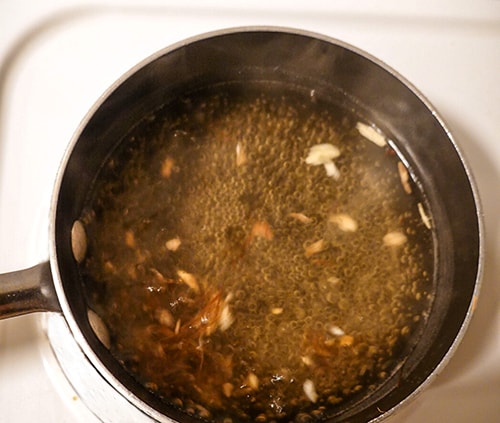
Step 2: Strain the decoction using a strainer.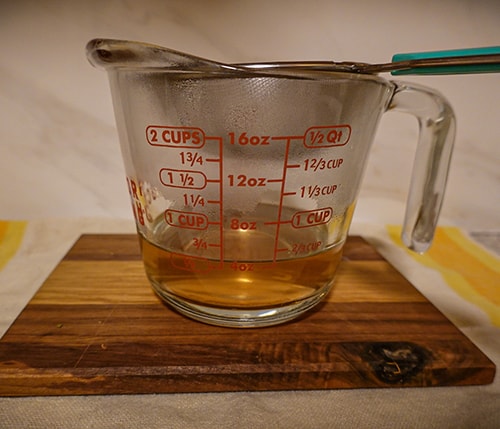
Step 3. Pour one cup of the decoction into your mug. Sweeten it with honey as desired.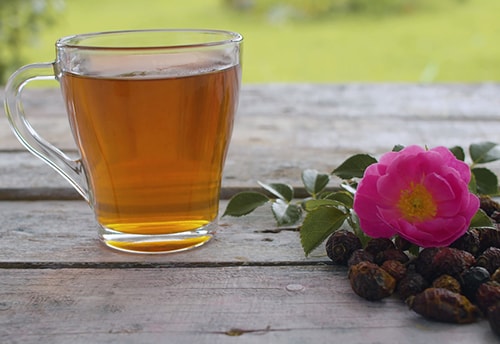
Enjoy a cup of tea daily for a week to alleviate arthritis pain.
Takeaway
Together, the nurturing and relieving powers of Cat’s claw, Yucca root, and Rosehips create a nourishing pain relief tea for arthritis. These herbs have anti-inflammatory and analgesic properties that can help reduce pain and inflammation in the joints.
With that, we hope you enjoy the tea! Give this pain relief decoction a try and see if it helps to alleviate your arthritis symptoms.







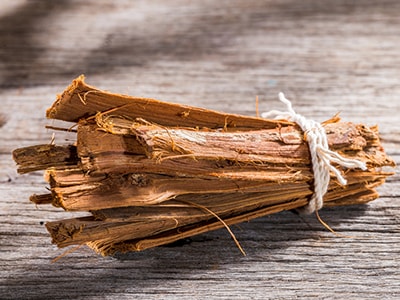
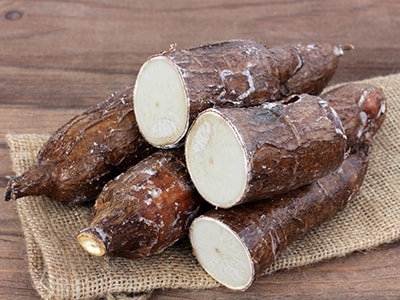
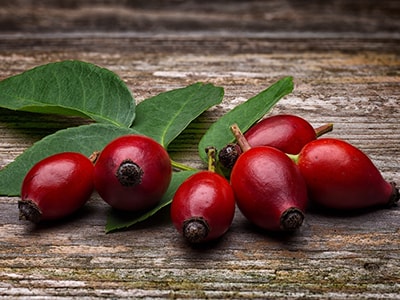
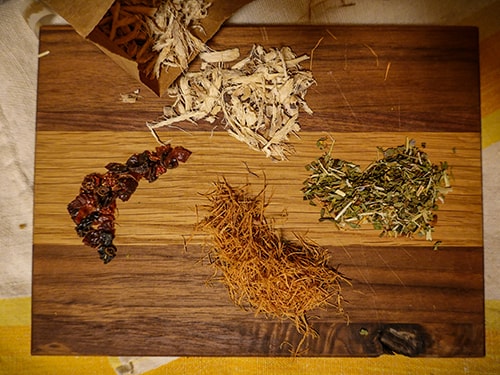

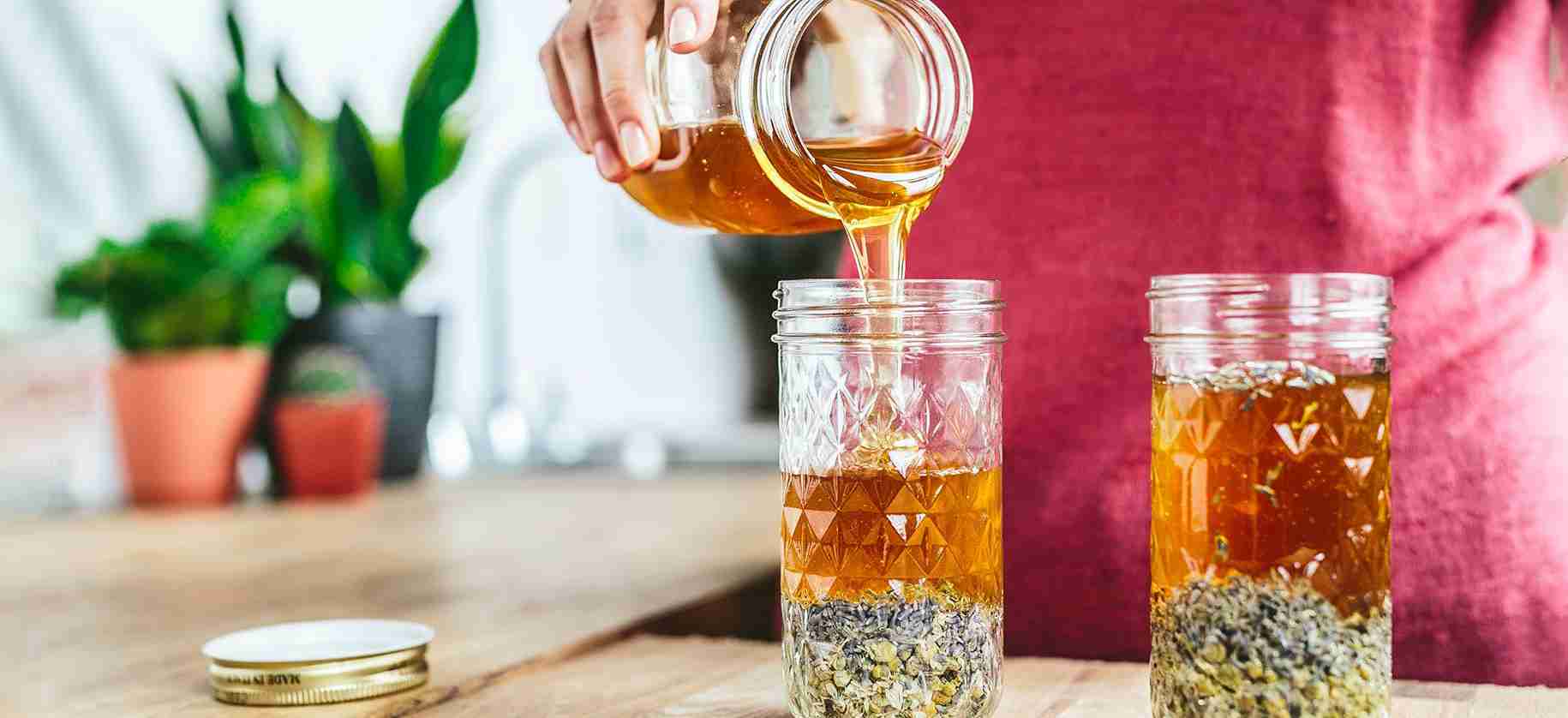
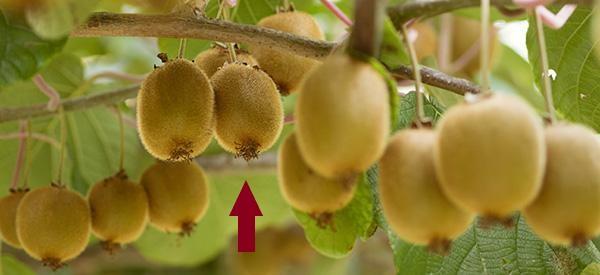
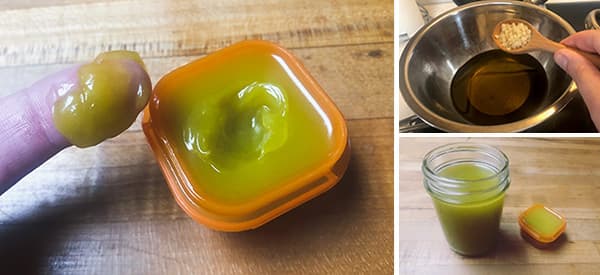
Rather than making this yourself, isn’t there a ‘full dose’ ‘teabag’ or pill containing all these ingredients that you can buy?
I will definitely start soon as possible
Enjoy natural medicine Thanks for this discovery
Thank-you
Having kidney disease from years of pharmaceutical anti inflammatory medications I have been removed from them. It is extremely painful. I am looking for natural alternatives. Are there any alternatives that are not hard on organs?
Hi Katherine,
We’re sorry to hear you’re going through this and we hope you’ll feel better soon.
Some anti-inflammatory plants that do not affect the liver include ginger and turmeric. Ginger has been used for centuries to reduce inflammation and relieve pain. Turmeric contains curcumin, which has been shown to have anti-inflammatory properties.
Many blessings and good health!
Some people are saying Turmeric can be hard on kidneys.
Thank you so much for sharing this information. I will try it for my RA.